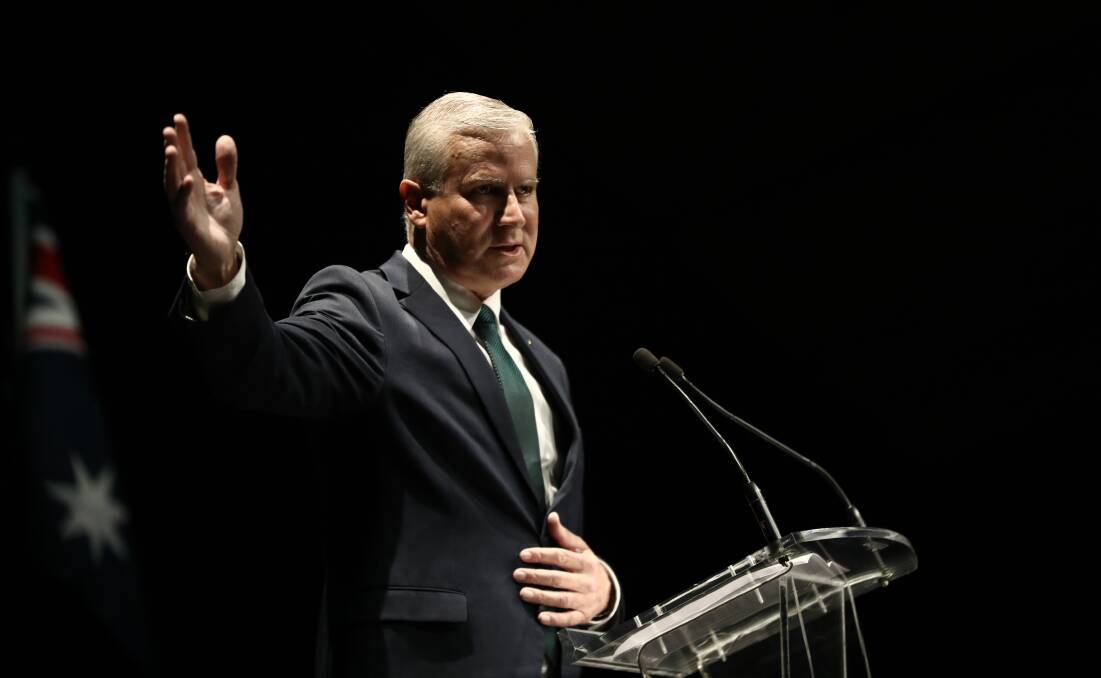
Grassroots campaigning was the key to the Nationals against-the-odds federal election win, says a vindicated Deputy Prime Minister Michael McCormack.
Buoyed by the Coalition's shock win, and on his way to greet party faithful in Forbes, the Nats Leader said his party defied pundits expectations with an under-the-radar campaign that won votes on local issues.
"You might get a big names talking to the national press, grabbing headlines in the major tabloids and going on Sky television, but local people just want local solutions," said Mr McCormack - making a thinly-veiled jibe at critics of his low-key leadership style.
The Nationals retained all 16 of their lower house seats across the country, including big swings towards key north Queensland MPs.
The party also added two women to their ranks in Anne Webster (who replaced Andrew Broad in Mallee) and Perin Davey's come-from behind win of the third NSW Senate spot.
Mr McCormack said climate change was an example of the disconnect between pundit's election predictions and the "quiet majority" of voters.
We have found a new model
- Michael McCormack
"Most of the people that ultimately decided this election are not the people on Twitter, or those talking about an apocalyptic climate in 2030," he said.
"Yes we have to do all the good things for the climate - but not by smashing up industry in Australia so the only job left is a barista.
"I think the people trust us to do practical, sensible measures without de-industrialising Australia."
The strong election result is a major boost for Mr McCormack's leadership credentials.
He's fended off speculation that former Nats Leader Barnaby Joyce would mount a comeback, backed by his proponents who favour a more combative style of politicking.
Mr McCormack said the Nats had found a new way in their sharp local focus and fresh blood like Mallee MP Ms Webster, a social worker focused on domestic violence through community groups like Mallee Family Care and Mallee Support and Accommodation Program.
"We have found a new model. Anne's not a typical Nat, she's worked in women's centres supporting people who have slipped through the cracks. It's not the tweed jacketed, plaid belted Nats of old," he said.
READ MORE:
"She's representative of the new face of regional Australia."
Concern over Labor's policy to abolish franking credits, dubbed the retiree tax by the Coalition, was a big factor in coastal seats like Cowper, in NSW, where first time Nats candidate beat of a return bid from former independent MP Rob Oakshott, and Wide Bay in Queensland, Mr McCormack said.
He travelled extensively to regional electorates for the past few months and Mr McCormack did not detect "any of that white hot anger" that some had forecast was waiting for the Nats at the ballot box.
The NSW election saw the Shooters, Fishers and Farmers party win three safe Nationals seats and water management was a controversial issue in Nats' held seats of Mallee, Nicholls in Victoria and for Liberals MP Sussan Ley in Farrer, NSW.
But despite strong campaigns from high-profile independent challengers who wanted to abandon the Murray Darling Basin Plan and strike out for new reforms, Mr McCormack said "he didn't feel a mood for change".
The Nat's southern opponents criticised the Coalition's record on two fronts - protecting socio-economic interests and their environmental record, but Mr McCormack said the issues which had sunk the NSW Nats were isolated to state issues.
"I am really against pausing the Plan. I've always said putting the Plan back into the parliament you could get people who go rogue, and deal with the Greens who want all the water to go to the environment.
"The Basin Plan certainly isn't perfect and I've never said it was. There will always be arguments over water, but people in the bush, the quiet achievers, know it's been dry and they backed our policy to store more water in new dams."
Mr McCormack said his priorities over the next term of government would be continuing drought assistance and building new infrastructure.
He wants to leave a political legacy of more dams and doctors.
Prior to the election Mr McCormack announced $100 million for the National Water Grid a new a statutory authority to oversee dam building. It will work with state governments to co-ordinate investments through the Council of Australian Governments.
Lat year, the Nats won a funding battle with their Coalition partners over the Murray Darling Medical School, a $95m investment to train and hopefully retain more doctors in regional university campuses in Victoria, NSW, South Australia.
"At the end of my political career, I want to be able to point to new dams, bigger weirs, more pipelines, they make so much difference at the local level.
"And we've also got the Murray Darling Medical School, I know what a difference that will make."


